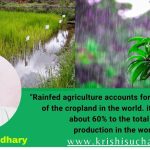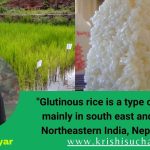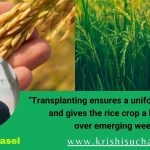SEED GERMINATION

INTRODUCTION
Seed germination, simply known as the growth of a seed into the young plant or seeding. Briefly germination is the emergence and development of seedling from the seed embryo, which is capable to produce a normal plant under favorable conditions .Seed germination influence both crop yield and quality .Seed germination is a complex process and various physiological activities take place. The pre-requisite for seed germination are viable seed, suitable environmental conditions, overcome dormancy.
During seed germination, a radicle emerges. First followed by plumele emergence. There are two of germination i.e., epigeal germination and hypogeal germination. In epigeal germination hypocotyl clongates by cell division and pushes cotyledon above the soil surface. Epigeal germination occurs mainly in dicots like bean, soya bean, pigeon pea, exception c-onion. In hypogeal germination epicotyl elongates by cell division and pushes the cotyledon below. Mostly hypogeal germination occurs in monocots like rice, wheat, maize, exception: pea, gram, etc.
RESULT AND DISCUSSION:
Seed germination is a physiological process, where the seeds takes up water rapidly and results swelling of seed coat by which seed coat softens and the process is called imbibition. Activation of enzymes occurs and seed activates it’s internal physiology and start to respire and produce proteins and metabolization of stored food occurs. The growth of the embryo occurs due to cell elongation followed by cell division along the root shoot axis at the expence of storage tissue.
The seed coat ruptures due to the imbibition pressure and plumule and radicle emerges .There are various requirements essentially required for a seed germination into a seeding and to a plant i.e., water, oxygen,temperature and light or darkness. Water helps by providing necessary hydration for the vital activities of protopicus ,sastens seed coat, provides dissolved oxygen to growing embryo. Oxygen is important source of energy for seed growth. It is required by the germinating seed for metabolism and used as a part of aerobic respiration.Moderate temperature for germination is around (25 to 30)degree celcius, extreme temperature (i.e,high or low) may hinders the germination process.Photoperiod also affects germination to the greater extent.Proper day length and night length is required for seed germination.
Factors affecting seed germination
Various factors affect seed germination as;
A) Internal factors
- Seed viability: Seed only retains its viability for a certain period of time. E.g. 1 year for onion, 2years for maize
- Seed dormancy
- Amount of reserved food material in the endosperm
- Presence of poisons or inhibitors like HCN, alkaloids, etc.
B) External factor
- Abiotic factor
- Moisture for activation of enzyme and for imbibition
- Air- Oxygen accelerates germination whereas Carbon dioxides retart
- Temperature optimum 25-50 degrees celcius
- Light
Biotic factor
- Insects
- Birds
- seed and soil borne diseases
C) Different management factors are also responsible for affecting seed germination like tillage practices, planting techniques, soil moisture management, harvesting, post-harvest handling etc.
CONCLUSION
Germination is a complex physiological mechanism and has been studied for many years where more studies are being conducted at the molecular level in order to more fully understand the succession of events leading to germination. As germination is one of the most important criteria of seed quality as it affects the crop establishment and therefore the yield and quality,the factors affecting the germination should be taken under consideration.
Writer: Enzy Subedi

 दिल्लीको होटलमा बसेर क्यानडा र अमेरिकामा मानव तस्करी
दिल्लीको होटलमा बसेर क्यानडा र अमेरिकामा मानव तस्करी  अनलाइन जुवा खेलाएर काभ्रेका अनिलले गरे दुई अर्बको कारोबार
अनलाइन जुवा खेलाएर काभ्रेका अनिलले गरे दुई अर्बको कारोबार  मुख्यमन्त्री सोडारीले विश्वासको मत लिन सुदूरपश्चिमको प्रदेश सभा बैठक आव्हान
मुख्यमन्त्री सोडारीले विश्वासको मत लिन सुदूरपश्चिमको प्रदेश सभा बैठक आव्हान  अफगानिस्तानमा बाढीबाट ३१५ भन्दा बढीको मृत्यु
अफगानिस्तानमा बाढीबाट ३१५ भन्दा बढीको मृत्यु  सुँगुरको मिर्गौला प्रत्यारोपण गरिएका रिचर्डको निधन
सुँगुरको मिर्गौला प्रत्यारोपण गरिएका रिचर्डको निधन 


